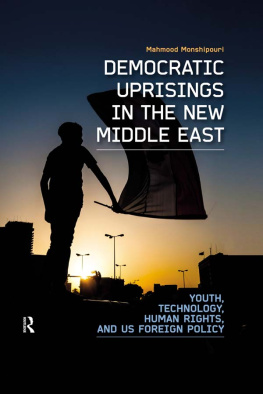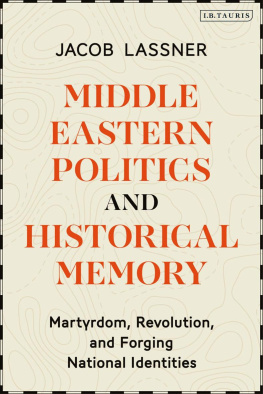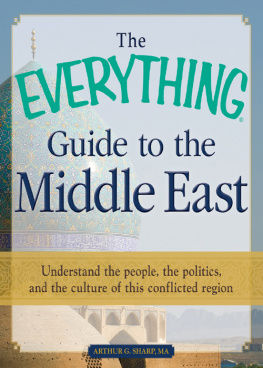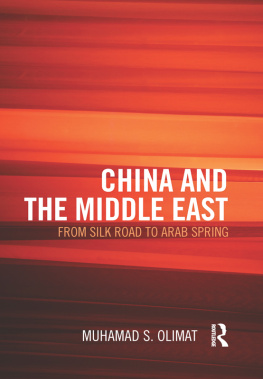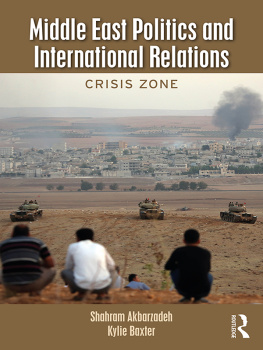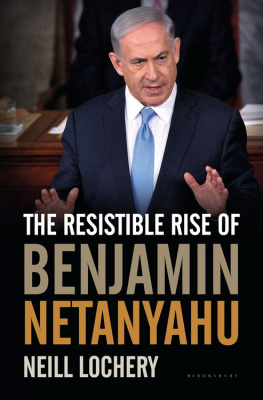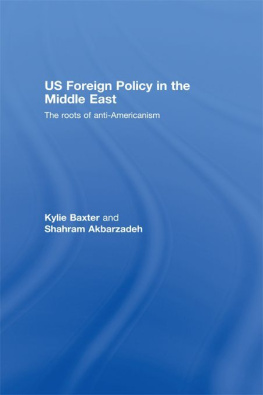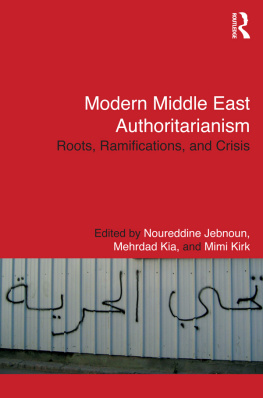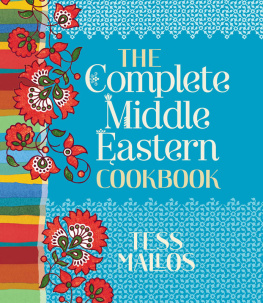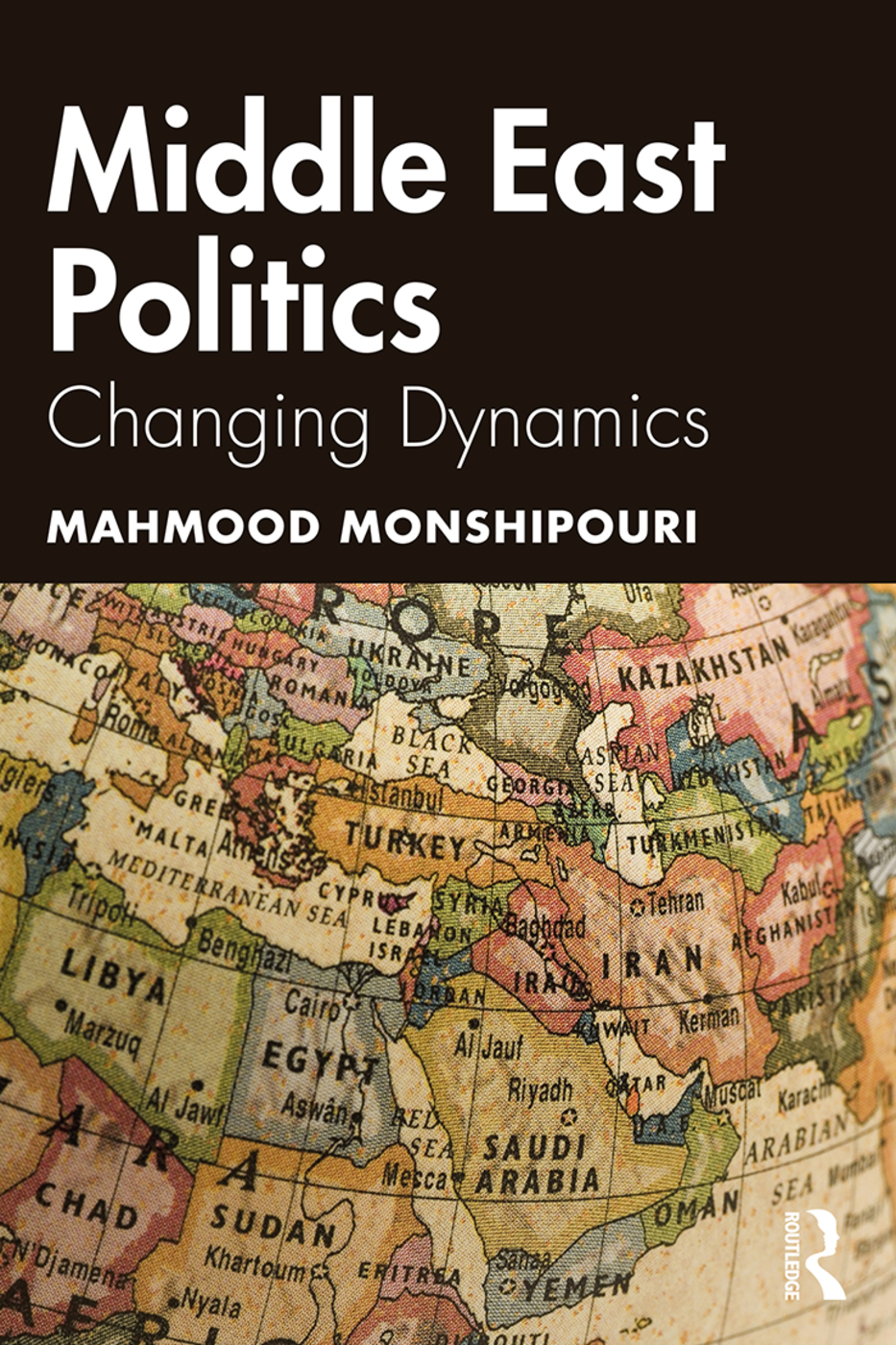Table of Contents
Landmarks
MIDDLE EAST POLITICS
Aimed at undergraduate-level courses, this brand-new textbook provides an overview of Middle Eastern politics, offering in-depth examination of the forces of stability, change, uncertainty, and progress in the region.
Building on both historical and contemporary analysis, the chapters are timely, engaging, and provocative, covering topics such as:
Turmoil and transition in Middle Eastern politics
The ArabIsraeli conflict
The Persian Gulf and global security
The rise of the internet
Terrorism and the Islamic State
USIran relations
The role of new regional players, such as China, India, and Russia
Increasing investment in wind and solar energy in the post-carbon era.
Providing a unique perspective on the major themes and current state of knowledge about the region, this new textbook will be invaluable to students of Middle Eastern politics.
Mahmood Monshipouri is Chair and Professor of International Relations at San Francisco State University, USA. He is also a Lecturer at the Global Studies/International and Area Studies at UC Berkeley. He is the editor of Information Politics, Protests, and Human rights in the Digital Age (2016).
MIDDLE EAST POLITICS
Changing Dynamics
Mahmood Monshipouri

First published 2019
by Routledge
2 Park Square, Milton Park, Abingdon, Oxon OX14 4RN
and by Routledge
52 Vanderbilt Avenue, New York, NY 10017
Routledge is an imprint of the Taylor & Francis Group, an informa business
2019 Mahmood Monshipouri
The right of Mahmood Monshipouri to be identified as author of this work has been asserted by him in accordance with sections 77 and 78 of the Copyright, Designs and Patents Act 1988.
All rights reserved. No part of this book may be reprinted or reproduced or utilized in any form or by any electronic, mechanical, or other means, now known or hereafter invented, including photocopying and recording, or in any information storage or retrieval system, without permission in writing from the publishers.
Trademark notice: Product or corporate names may be trademarks or registered trademarks, and are used only for identification and explanation without intent to infringe.
British Library Cataloguing-in-Publication Data
A catalogue record for this book is available from the British Library
Library of Congress Cataloging-in-Publication Data
Names: Monshipouri, Mahmood, 1952 author.
Title: Middle East politics : changing dynamics / Mahmood Monshipouri.
Description: Milton Park, Abingdon, Oxon ; New York, NY :
Routledge, 2019. | Includes bibliographical references and index.
Identifiers: LCCN 2019006460 (print) | LCCN 2019011556 (ebook) |
ISBN 9780429060496 (master) | ISBN 9780429595448 (Adobe Reader) |
ISBN 9780429594151 (Epub) | ISBN 9780429592867 (Mobipocket) |
ISBN 9780367182861 | ISBN 9780367182861 (hardback) |
ISBN 9780367182847 (pbk.) | ISBN 9780429060496 (e-book)
Subjects: LCSH: Middle EastPolitics and government20th century. |
Middle EastPolitics and government21st century. | Middle EastForeign relations20th century. | Middle EastForeign relations21st century.
Classification: LCC DS62.8 (ebook) | LCC DS62.8 .M65 2019 (print) |
DDC 956.04dc23
LC record available at https://lccn.loc.gov/2019006460
ISBN: 978-0-367-18286-1 (hbk)
ISBN: 978-0-367-18284-7 (pbk)
ISBN: 978-0-429-06049-6 (ebk)
Typeset in Bembo
by codeMantra
CONTENTS
PART I
Historical and contemporary contexts
PART II
Changing dynamics and evolving challenges
PART III
Prospects for the future
Figures
Tables
Throughout the long production of this book, I have been assisted by a number of diligent and imaginative colleagues and teaching assistants. I am particularly indebted to Professor Manochehr Dorraj, Texas Christian University, and Professor Mehran Kamrava, Georgetown University, Qatar, Doha for their inspirational thoughts and insights on Chinas New Silk Road campaign and the evolving Persian Gulf security concerns respectively. I am also grateful to my colleague Professor Jonathan Whooley, our office coordinator Katie Murphy, and our student assistant Shirin Jafari-Kermani in the International Relations Department at San Francisco State University for their practical editorial advice. Special words of thanks go to Claire Tam, my teaching assistant in the Department of Political Science at University of California, Berkeley, whose editorial comments proved immensely helpful. I also greatly benefitted from informal weekly meetings, known as the MENA Salon, at the Center for Middle Eastern Studies at University of California, Berkeley under the leadership of Deniz Ilhan, Michael Youhana, and Candace B. Lukasik, who assigned a rich selection of readings on the regions topical, timely, and provocative issues. I learned a great deal by participating in those discussions. I am particularly grateful to Steve Barr and John Curley for their valuable and extraordinary counsel, wisdom, and editorial suggestions. Finally, it is with the deepest gratitude that I acknowledge insightful remarks provided by anonymous external reviewers. The responsibility for the selection of the chapters and for their proper presentation, however, rests with me.
TURMOIL AND TRANSITION IN MIDDLE EAST POLITICS
The Middle East and North Africa (MENA) region continues to face multiple, explosive crises and staggeringly complex challenges that could threaten regional stability and the global political and security order should they be allowed to fester and metastasize. Known as the cradle of civilization and the birthplace of the three Abrahamic monotheistic religionsJudaism, Christianity, and Islamthe MENA region is currently one of the most turbulent areas in the world. In the past three decades alone, it has seen protests, uprisings, burgeoning sectarian tensions, civil wars, profound acts of terrorism, and a dramatic increase in the number of refugees and migrants spilling across regional and international borders.
The region has yet to recover from the 2011 uprisings of the Arab Spring that exploded in a fierce demand for liberty, economic security, social justice, and change that challenged, however transiently, the gerontocratic, corrupt, and authoritarian rule over increasingly young and alienated populations from Morocco to Syria. One expert has aptly described these uprisings as a refreshing departure from the past fixation with the ability of despots to enjoy uncontested power: A revolutionary moment of political emancipation and self-determination challenges conventional ways and dominant thinking about the region, such as the durability and resilience of authoritarianism and the ability of autocratic rulers to police the status quo. While these uprisings have led to new struggles for democratic freedoms, ensuing events have left many young protesters with a deep sense of disillusionment, uncertainty, and unease about their future. A string of new political, socioeconomic, and cultural challenges has sounded the alarm throughout the region since the 2011 uprisings that authoritarian regimes and their external patrons may not have been ready or willing to hear.


